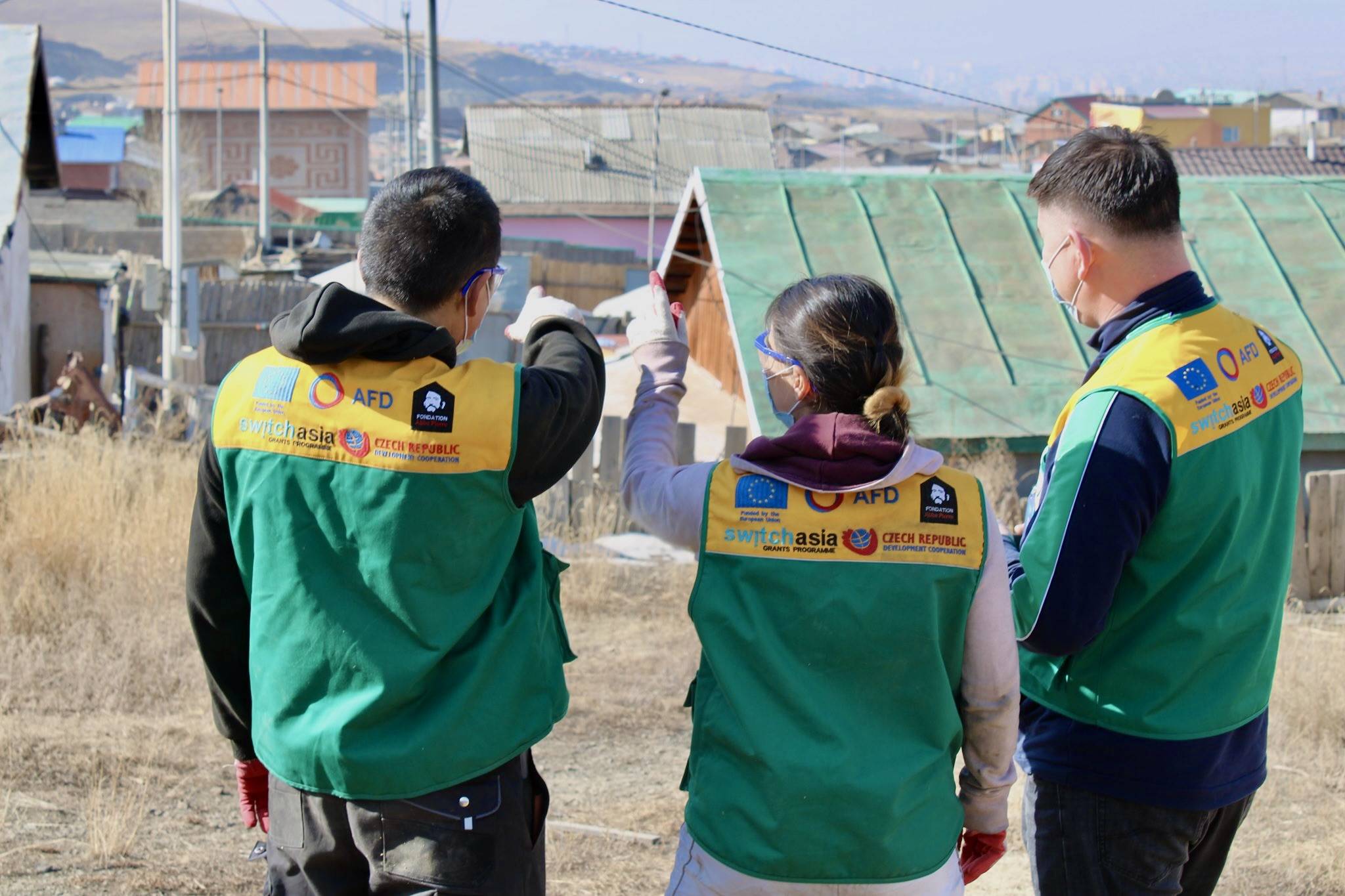
Ulaanbaatar, the capital of Mongolia, is home to half of the country's three million residents. Known as one of the most polluted cities globally, its geographical location and harsh weather conditions also rank it among the coldest capitals. To cope, residents commonly burn coal for heat, significantly contributing to the city’s air pollution. On the coldest days, average PM2.5 pollution levels soar to 687 micrograms per cubic meter—27 times above the recommended safe level.
The city comprises approximately 412,000 households, with 48.6 percent residing in the Ger district, the area most affected by air pollution. Unlike the downtown buildings connected to the centralized heating system, Ger district homes rely on coal during winters when temperatures plummet to minus 40 degrees Celsius. This not only compromises indoor and outdoor air quality but also burdens households financially, contributing to energy poverty. A 2017 report by the Ministry of Construction and Urban Development (MCUD) highlighted that 90% of homes in Ger districts lack proper engineering designs or use substandard materials, resulting in significant heat loss and heightened health risks.
In response to these challenges, Mongolia's Nationally Determined Contribution (NDC) targets a 22.7% reduction in greenhouse gas emissions by 2030—equivalent to 16.89 million tons of CO2, with 830,000 tons expected to be cut from the construction sector alone. Achieving this goal requires substantial improvements in energy efficiency for both existing and planned detached houses in the Ger areas.
Additionally, Mongolia, which relies heavily on imported energy, experienced more frequent energy shortages in 2023. The government has urged the public to adopt energy-saving practices during peak hours to manage demand and prevent outages. Without the adoption of alternative energy solutions, the situation is likely to deteriorate as energy demands increase.
To tackle these issues, various projects and initiatives are underway. For example, the Switch Off Air Pollution (SOAP) II project, funded by the European Union's SWITCH-Asia programme, focuses specifically on insulating detached houses to reduce air pollution. Continuing from the SOAP I project (2018-2022), this initiative aims to expand by integrating clean, renewable energy solutions and energy-efficient house designs, and by replicating these improvements across other provincial centers through 2026.
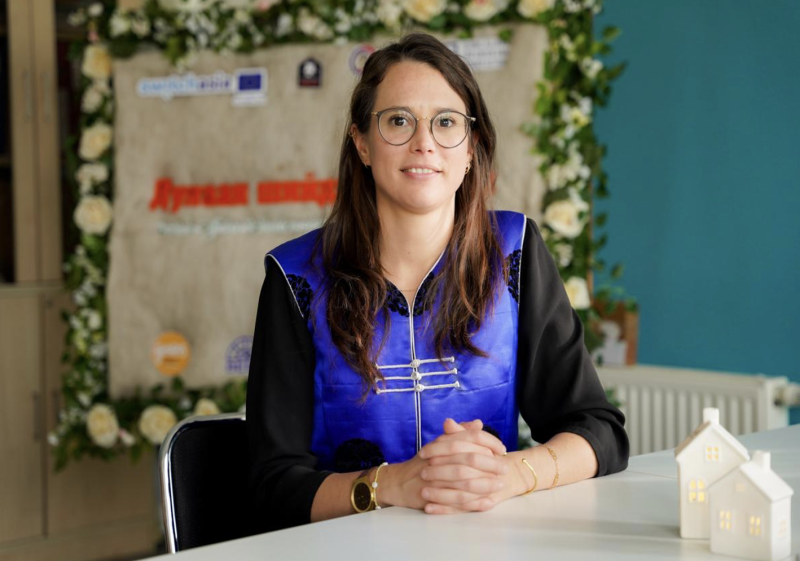 "Establishing a one-stop shop mechanism and raising public awareness are the initial steps. Sustaining these activities and changing household behaviours are the next steps. This is the rationale behind launching the second phase of our project. We are currently midway through this phase and can proudly observe that the community has begun to change its behaviour. Most stakeholders now recognise that insulation is an essential first step in sustainable consumption and production (SCP) practices," said Eliane Jarry, Country Representative of Geres Mongolia, SOAP II Project Manager.
"Establishing a one-stop shop mechanism and raising public awareness are the initial steps. Sustaining these activities and changing household behaviours are the next steps. This is the rationale behind launching the second phase of our project. We are currently midway through this phase and can proudly observe that the community has begun to change its behaviour. Most stakeholders now recognise that insulation is an essential first step in sustainable consumption and production (SCP) practices," said Eliane Jarry, Country Representative of Geres Mongolia, SOAP II Project Manager.
Our Work:
Insulation Market System: The project successfully connected the actors within the insulation market value chain, facilitating their collaboration and building their capacity to deliver high-quality insulation services. Additionally, it explored various financing options by partnering with banks, non-banking financial institutions, and savings groups. The main technologies employed include insulation for roofs, attics, walls, windows, foundations, and floors.
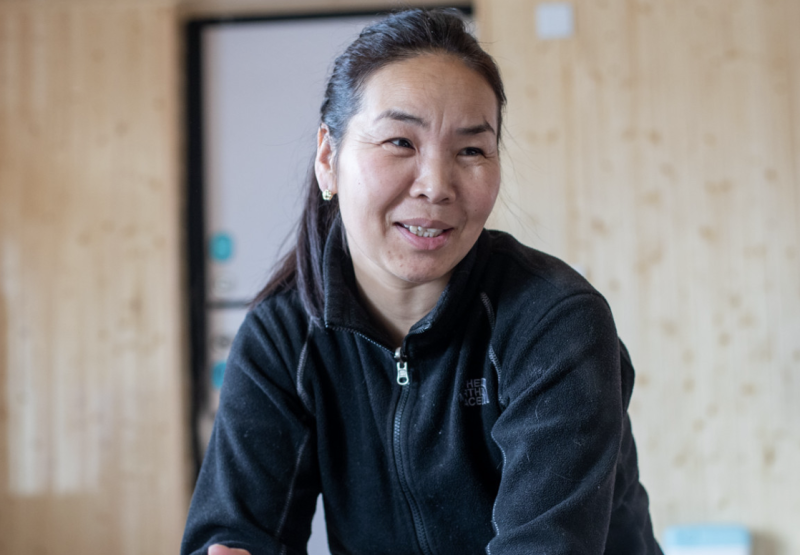 “I used to worry constantly about fire and coal-related issues. However, this insulation solution has proven not only convenient but also beneficial. I used to wake up at 4:00 AM every day to start a fire. After insulating our house, I initially continued this routine, but then realized it was no longer necessary, so I happily went back to sleep", said Oyunsuren B., resident of Khan-Uul district.
“I used to worry constantly about fire and coal-related issues. However, this insulation solution has proven not only convenient but also beneficial. I used to wake up at 4:00 AM every day to start a fire. After insulating our house, I initially continued this routine, but then realized it was no longer necessary, so I happily went back to sleep", said Oyunsuren B., resident of Khan-Uul district.
Renewable Energy Solutions: The project is pilot testing several renewable energy solutions to ensure their availability on the market with reliable suppliers, alongside monitoring and verifying energy savings and financing options. By making these solutions accessible, it will facilitate household adoption of clean energy.
Energy-Efficient New Buildings: Many households are planning to construct new homes. Although building norms and standards exist, enforcement is insufficient. The project has developed nearly zero-energy buildings (nZEB) that utilize solar panels, adhering to the self-sufficiency principle. These buildings maintain an annual energy balance and significantly reduce energy consumption. The building, measuring 6x6, is highly insulated and rated as energy class A for high efficiency. It features a heating system with a 5-15 kW heat pump and a 5.6 kW solar panel. The ultimate goal is to make private homes energy-independent and less reliant on centralized systems.
Watch the video - PLAY
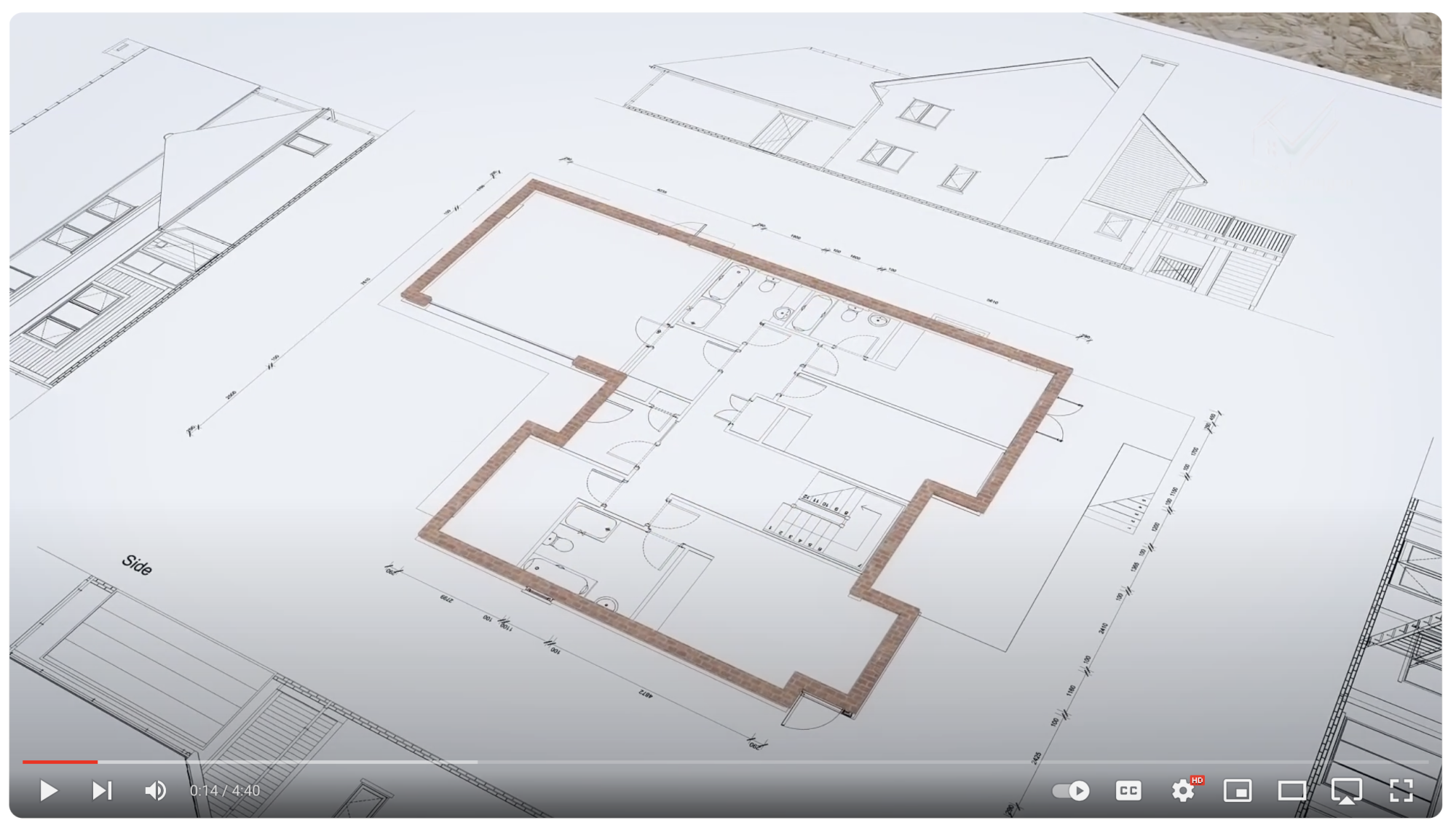
During the two phases of the Switch Off Air Pollution (SOAP) project, 144 construction craftsmen were trained in construction standards, insulation practices, and cost-effective insulation methods. SOAP II enhanced their skills and provided them with additional income opportunities by offering insulation services. Moreover, the project aimed to financially empower these craftsmen by equipping them with marketable knowledge and skills.
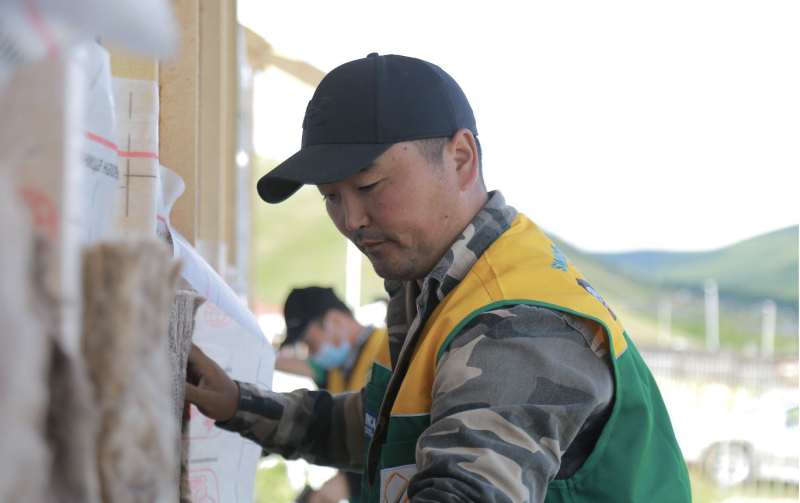 “I am currently working as an insulation advisor for the SOAP II project while operating a building sector company. I have assessed over 100 households and successfully insulated more than 70 homes. The project has not only provided financial support but has also given me the valuable opportunity to contribute to making homes more energy-efficient”, said J. Unurbayar, Insulation Advisor.
“I am currently working as an insulation advisor for the SOAP II project while operating a building sector company. I have assessed over 100 households and successfully insulated more than 70 homes. The project has not only provided financial support but has also given me the valuable opportunity to contribute to making homes more energy-efficient”, said J. Unurbayar, Insulation Advisor.
Over the next two years, the SOAP project is expected to assist 5,900 households in implementing energy-efficient solutions, saving 17,700 tons of CO2 and significantly reducing air pollution in Ulaanbaatar and other Mongolian cities.
The SOAP II project is jointly implemented by the Geres International NGO, Building Energy Efficiency Center of MUST, the Mongolian National Construction Association NGO, the Mongolian Women's Fund, and the Mongolia Green Finance Corporation. Financing for the project is provided by the European Union's SWITCH-Asia programme, Abbe Pierre Foundation, GAGGA Fund, and the French Development Agency.


